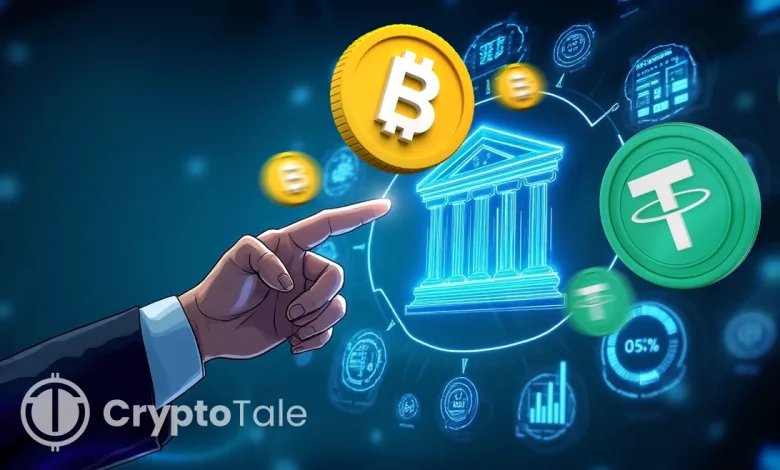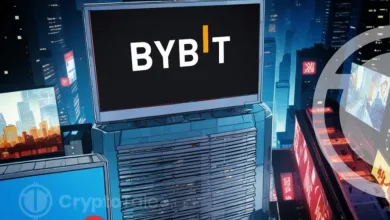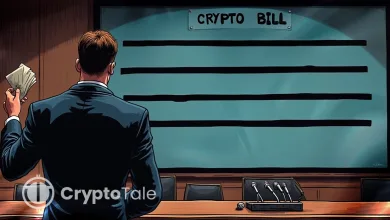Conexus Brings BTC and USDT to Venezuela’s Banking System

- Conexus develops a blockchain system to let Venezuelan banks manage Bitcoin and Tether.
- The new platform aims to link digital currencies with the national banking network by 2025.
- The project aims to boost financial stability as citizens turn to stablecoins to secure their funds.
Venezuela is moving closer to merging traditional banking with digital currencies. The country’s leading payment company, Conexus, is developing a system that allows banks to handle Bitcoin and stablecoins such as Tether (USDT). The platform aims to bring blockchain assets into the national banking network. It is expected to launch by December 2025, pending regulatory approval and technical completion.
Conexus already manages about 40% of all electronic transfers in the country. Thus, it controls a large part of the Venezuelan payment infrastructure. The new blockchain platform that Conexus is working on allows banks to take custody, transfer, and fiat conversion services for digital assets as well.
Conexus Drives Venezuela’s Shift Toward Regulated Crypto Banking
Rodolfo Gasparri, president of Conexus, noted that the project aims to meet the growing demand for financial stability in Venezuela. He explained that the blockchain-based system is being developed to reduce the impact of currency volatility. Many citizens already use stablecoins to safeguard their funds. With this system, banks would soon offer these services under regulated conditions.
Venezuela has been going through several years of economic downturn and highly volatile inflation. Its currency lost almost all of its value, with the citizens looking for ways to maintain their funds as effectively as possible.
Gasparri said the project would bring a new perspective to cryptocurrencies in Venezuela. He further stated that putting digital assets under banking supervision would increase transparency and trust. The system is designed to manage Bitcoin and USDT circulation, protect users, and bridge the gap between financial compliance and blockchain innovation.
Venezuela Sets Path for Crypto-Integrated Banking
If successful, the project would mark one of the first nationwide integrations of crypto assets within a traditional banking network. Analysts suggest it could become a model for countries facing similar economic instability. Inflation and volatile exchange rates remain major issues across Latin America.
The initiative is consistent with the global trend of financial institutions implementing blockchain solutions. Banks and payment companies use distributed ledgers to process transactions faster, save on costs, and improve their security. If successfully implemented, this would allow Venezuela to become the regional pioneer of the centralized banking system based on a cryptocurrency.
Although the system is still in progress, the first signs indicate that compliance and user protection are the main priorities. Eventually, Conexus will combine legacy banking platforms with blockchain-based ones to enable them to interact smoothly. The developers believe that this is going to be a landmark in the history of Venezuelan finance.
The adoption of Bitcoin and stablecoins into the formal banking system could also offer greater financial stability to citizens. It would enable people to store, transfer, and exchange crypto assets along with traditional currency. This would limit the risks of unregulated crypto use and improve government regulation. For many, it is a safer and more transparent way of engaging in the digital economy.
Related: Venezuela Turns to Tether (USDT) as Dollar Access Tightens
Meanwhile, the Venezuelan government is still seeking to use cryptocurrency for transactions and to generate revenue. Reports are that it now uses digital payments, primarily from China, for oil exports. The mechanism enables the country to circumvent U.S. sanctions by not using dollar transactions.
These payments are allegedly channeled through local state-licensed exchanges. The move reflects the extent to which Venezuela’s economy is being tied to blockchain networks. If Conexus is successful in its launch, the system could transform the nation’s financial future. The Venezuelan people would soon have access to both digital and traditional assets within a bank-like environment.




